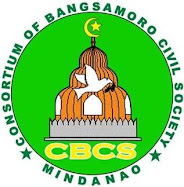Open Dumps To Sustainable LandfillsBy Dr. Kurian Joseph, Dr. R. Nagendran, Dr. K. PalaniveluCentre for Environmental StudiesAnna University, Chennai, IndiaThe management of solid waste is an area of universal concern for both the developed and developing world. It is imperative that efficient, technically sound, and cost effective solid waste management solutions are developed in the near term – for the benefit of the burgeoning populations in the world’s cities and the natural environments that must sustain them.
Historically, countries dealt with solid waste by burying it in the ground, covering it up, and forgetting about it. Another approach was the uncontrolled burning of waste to reduce volume. The subsequent ash was then buried in the same manner as waste.
A recent study of World Bank over 50 landfills in Asia, Africa and Latin America has identified current practices, emerging features and necessary improvements in the land disposal of solid wastes (Johannessen and Boyer, 1999).The landfills visited in the Africa Region ranged from open dumps to sanitary landfills. While decision makers in the region were aware that their countries had to upgrade open dumps to sanitary landfills, this was not regarded as a priority.
An Open Dump site is a land disposal site at which solid wastes are disposed of in a manner that does not protect the environment, is susceptible to open burning, and is exposed to the elements, disease vectors and scavengers. These unplanned heaps of uncovered wastes, often burning and surrounded by pools of stagnated polluted water, rat and fly infestations with domestic animals roaming freely and families of scavengers picking through the wastes is not only an eyesore but a great environmental hazard.
As a default strategy for municipal solid waste management, open dumps involve indiscriminate disposal of waste and limited measures to control operations, including those related to the environmental impacts of landfills. Very often, open dumping sites are swamp lands or low-lying areas with the wastes being used for reclamation. Liners are rarely used and little consideration is given to the water table and groundwater pollution and/or gas migration. Problems of shortage of cover, lack of leachate collection and treatment, inadequate compaction, poor site design, and many ragpickers working at the site are common.
The high percentage of organics, combined with much plastic, which forms layers when compacted, contributes to the build-up of methane gases at dumps. Fires often break out and workers are made ill by the gases. In cities where plastic shopping bags are used to put out wastes for collection, waste pickers sometimes set refuse on fire in order to recover valuable inorganic items. Spontaneous fires also break out in dumps. This greatly adds to the air pollution from dumps. The roads leading to dumps and those on dumps themselves are often elementary, becoming impassable in the wet season.
Since most large dumps have hundreds of extra workers in the form of waste pickers, and the municipal workers are not provided with protective gloves, the health risks at dumps are much higher than in sanitary landfills in industrialized countries. These workers are exposed to risks from human feces, slaughterhouse wastes, landfill gases, toxic dust, infectious biomedical wastes, snakes, scorpions, broken glass, and explosions. Thus, these dump sites are essentially uncontrolled, creating considerable health, safety, and environmental problems. [...]
Click here to read more.






